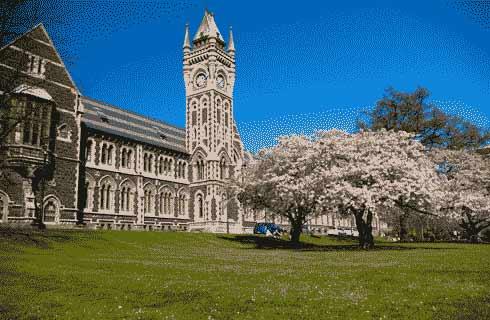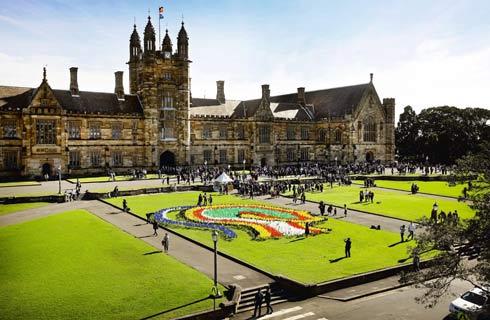社会文化人类学与人种学哲学博士
Doctor of Philosophy in Sociocultural Anthropology and Ethnography

学历文凭
Ph.D.

专业院系
Department of Anthropology

开学时间

课程时长

课程学费

国际学生入学条件
IDP—雅思考试联合主办方

雅思考试总分
7.0
- 雅思总分:7
- 托福网考总分:90
- 托福笔试总分:160
- 其他语言考试:NA
CRICOS代码:
申请截止日期: 请与IDP联系 以获取详细信息。
课程简介
Sociocultural anthropologists conduct long term research in one or more communities and participate in daily activities while they observe and engage with community members. This approach is always collaborative, grounded in conversation rather than in distanced and decontextualized analysis. This approach and the knowledge it generates are intensely local, on the ground and in the weeds with the peoples it studies yet synthesizing and critical of received canons and theories. Its disciplined, participatory, long-term, and self-reflexive methods mean that ethnographic knowledge is hard-earned and unique. At the same time, sociocultural anthropologists often employ methods from the humanities and other social sciences to complement their ethnographic research.<br><br>Sociocultural anthropologists embrace the humanities when they investigate realms as far-reaching as expressive culture (music, performance, material arts, texts, architecture, film, and other semiotic media), religious practices and movements, moral values, ethics, and human rights, history, heritage, and memory practices (how the past has made and is recollected in the present), stories and storytelling, knowledge formations, the construction of (multiple) realities through practices involving entities as various as the dead, deities, non-human life forms, and things, consumption and tourism, and nature, biomedicine, and other sciences and technologies.<br><br>Members of the Program thus study history, memory and everyday life in Japan, memory practices of how the past is made and recollected in the present, and how intellectual property law is interpreted in Southeast Asia, expressive religious experience among African Americans, psychiatry as a globalizing form of knowledge and practice in South Asia, and meanings and modes of evidence within emerging forms of technologized embodiment in biomedicine.<br><br>Sociocultural anthropologists attend to the social sciences when they examine the enacted and performed divisions, solidarities and alliances that mark interactions between individuals, groups and communities of different ethnicities, classes, genders, sexualities, and nationalities, and generate different forms and meanings of power. They thus consider relationships of caste inequality, class antagonisms and alliances, ethnic conflicts and chauvinisms, processes of race and state formation, citizenship, and sovereignty, the function of economic institutions (e.g. markets), and the processes of production, consumption, distribution, exchange and waste disposal, the asymmetries of gender and different sexualities, urbanization and transnational migration, the making of democratic and nondemocratic politics, social movements and their knowledges, political leadership, parties, factions and interest groups. As they do so, sociocultural anthropologists reflect critically on the Western (and sometimes ethnocentric) premises of much prevailing social science scholarship, and seek to advance it in more innovative directions.<br><br>More specifically, members of the Program study the negotiation and contestation of colonial processes by sovereign indigenous peoples in north America, gender, race, and sexuality in changing cultural, political, and economic contexts in Latin America, the processes through which reproductive health strategies contribute to liberalize post-Soviet Russia, the relations between ethnic identities and class and state formation in Southeast Asia, the ways Andean communities use heritage and place to defend entrepreneurial activities, social movements and activism in Latin America, the Caribbean and North America, and how people's identities and behaviors express experience, society and history through race, religion and class in the Caribbean, among other research foci.
相关申请
 预科
预科 奖学金
奖学金 实习机会
实习机会 在校学习
在校学习 跨境学习
跨境学习 校园授课-线上开始
校园授课-线上开始 在线/远程学习
在线/远程学习
开学时间&学费
学费信息仅供参考,请与IDP联系以获取详细信息
| 开学时间 | 时长 | 学费 | 地点 |
|---|
学校排名

世界排名56
数据源:
泰晤士高等教育世界大学排名
关于北卡罗来纳大学教堂山分校

北卡教堂山是全美第一所公立大学,从她成立到现在,已然过去了两个多世纪。作为美国最好的公立大学之一,UNC教堂山的校区占地729英亩,校园包括了一座艺术博物馆、一座天文馆、植物园、花园式教室等等。炙手可热的学术项目,世外桃源般的校园与南部卡罗莱纳湛蓝的天空相结合,为北卡教堂山赢得了“南方天堂”与“南方常青藤”等美誉。广泛的资源为北卡教堂山223个专业提供了坚实的学术后盾。这里最有影响力的专业是新闻与商科。UNC北卡竭力为学生提供尽可能多的课堂外研究机会,比如旨在培养企业家精神的Carolina Entrepreneurial Initiative,以及学生自己组织,每年为最好的商业企划提供五万美金奖励的Carolina Challenge。如果你厌倦了在教室之间奔波,可以选择到全美人文科学中心所在地Research Triangle Park,应聘做助理研究员。根据北卡罗来纳州的法律,UNC北卡必须保证至少82%的学生来自本州,这也导致了州外及国际学生申请录取的竞争非常激烈。不过,想一想“公立常青藤”的学术能力,雄伟壮观的校园,70个国家300个交流项目的机会,以及篮球之神乔丹母校的名望,为什么不申请呢?
本校相关课程

Doctor of Philosophy in Marketing
学历文凭
Ph.D.
开学日期
课程费用总额


Doctor of Philosophy in Finance
学历文凭
Ph.D.
开学日期
课程费用总额


Doctor of Philosophy in Accounting
学历文凭
Ph.D.
开学日期
课程费用总额


Master of Accounting
学历文凭
Masters Degree
开学日期
课程费用总额


Doctor of Pharmacy
学历文凭
Ph.D.
开学日期
课程费用总额


Juris Doctor and Master of Arts in Mass Communication
学历文凭
Combined Graduate / Doctoral Degree
开学日期
课程费用总额










 美国
美国